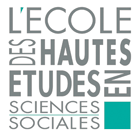
- Auteurs
- Livres originaux
- Traductions :
par titre par sujet par série - Critiques
- Rechercher
Membres Ressources en ligne Bibliographie Colloques BAT Publications
Jean-Jacques, abbé Barthelemy
Statut : clergy / academic
1716-1795
Notes : Jean-Jacques Barthélemy studied at the Oratory of Marseilles, then with the Jesuits and finally at the seminary of the Lazaristes, where he was probably ordained. In 1744 he arrived in Paris, where Gros de Boze, permanent secretary of the “Académie des Inscriptions” and curator of the “Cabinet des Médailles” of the king, employed him as assistant curator to catalogue the coins of the royal collection. Associate of the “Académie des Inscriptions” in 1747, pensionary 1766, he composed a series of memoirs on numismatics, Greek epigraphy, oriental philology and archaeology. In 1753 he succeeded Gros de Boze as curator of the “Cabinet des Médailles”. Between 1754 and 1757, he travelled in Italy, as companion of the Comte de Stainville, future duc de Choiseul, appointed French ambassador at Rome. At Naples, where he spent a month visiting the sites of Herculaneum, Pompeii and Paestum, he became friends with Alessio Simmaco Mazzocchi whom he introduced to the “Académie des Inscriptions” in 1757 as foreign member. Barthélemy returned to Paris with an ample harvest of inscriptions, almost three hundred coins for the royal Cabinet and abundant notes on the monuments of Rome. Just as several decades earlier Lord Stanhope had asked the Abbé de Vertot to pronounce on the method of recruitment of senators under the Roman Republic, so in 1772 Lord Stanley asked Barthélemy to clarify a point of law which was dividing the English Parliament at the time. He was asked to pronounce on the Greek and Roman practices concerning the division of war booty, a question raised by a conflict between the East India Company and certain British officers accused of having improperly enriched themselves. The “Voyage du jeune Anacharsis”, published in December 1788, as is well known, was an immediate and extraordinary success. Translated almost at once into several languages, the work was reissued (and also in several abridgements) throughout the 19th century in France and abroad. Barthélemy was elected to the Académie française on the 5th March 1789. Member of the Commission for Monuments created by the Constituent Assembly, he was imprisoned in 1793 but soon freed. Although the 18th century battle between Athens and Sparta is taken into account in the narrative of Abbé Barthélemy, the author does not really take sides in the debate. For him Lycurgus and Solon have in common the purpose « d’avoir travaillé avec la même ardeur, mais par des voies différentes, au bonheur des peuples ». It is perhaps significant that Anacharsis, the « noble savage » who travels from Paris to the Greek world of the 4th century B.C., makes Athens his « habitual residence » but passes more time in Sparta (with the eleven chapters that Barthélemy devotes to the city), and finally returns without regret to his native Scythia.
Traductions :
- Auteur de Polydor und Charite (1799)
- Auteur de Alexander der Eroberer (oder Fortsetzung der in Anacharsis Reise enthaltenen Geschichten von Alt-Griechenland) (1797)
- Auteur de Reise des jüngern Anacharsis durch Griechenland vier hundert Jahre vor der gewöhnlichen Zeitrechnung (1792-3)
- Auteur de The Travels of Anacharsis the Younger, in Greece..Abridged from the original work..Second edition. To which is..added, the life of the author, translated from the French of the Duc de Nivernois. (1798)
- Auteur de Riflessioni sull'alphabeto, e sulla lingua di cui si sorvioni gli abitanti di Palmira (1758)
- Auteur de Reise des jüngern Anacharsis durch Griechenland, vierthalbhundert Jahre vor der gewöhnlichen Zeitrechnung (1826-32)
- Auteur de Viage del joven Anacarsis á la Grecia, á mediados del siglo cuarto antes de la era vulgar, por J.-J. Barthelemy, compendiado para uso de los jovenes (1835)
- Auteur de Travels of Anacharsis the Younger in Greece..Seventh edition (1816-18)
- Auteur de Viage del joven Anacarsis á la Grecia á mediados del siglo cuarto antes de la era vulgar, por Juan Jacobo Barthelemy, traducido del francés al castellano, edicion revista (1835)
- Auteur de Travels of Anacharsis the Younger in Greece during the middle of the fourth century B.C. Second edition (1794)
- Auteur de Reise des jüngern Anacharsis durch Griechenland viertehalbhundert Jahr vor der gewöhnlichen Zeitrechnung.T.1. (1792)
- Auteur de Reise des jungen Anacharsis durch Griechenland vierhundert Jahre vor der gewöhnlichen Zeitrechnung (1792)
- Auteur de Die Hellenen, oder die Menschheit in Griechenland : Nach Jean Jacqes Barthelemy ; Als Handbuch zu Vorlesungen auf Schulen und Universitäten, und zum Selbstgebrauch für Freunde der Geschichte der Menschheit (1799)
- Auteur de Anacharsis Reise. Neugriech. (1819)
- Auteur de Des Abbe J. J. Barthelemy ... Fragmente über Italien nebst einer Beschreibung der Ruinen von Palmyra und Balbeck, und der Alterthümer von Herculaneum (1803)
- Auteur de Reise des jungen Anacharsis durch Griechenland vierhundert (2-7: vierthalb hundert) Jahre vor der gewöhnlichen Zeitrechnung (1795-6)
- Auteur de Anacharsis des jüngern Reise durch Griechenland, viertehalbhundert Jahre vor der gewöhnlichen Zeitrechnun, aus d. Franz. Übers. Von Biester (1792-1802)
- Auteur de Reise des jüngern Anacharsis durch Griechenland, vierthalbhundert Jahre vor der gewöhnlichen Zeitrechnung. (1826-7)
- Auteur de Reise des jungen (3-7: jüngern) Anacharsis durch Griechenland vierhundert Jahr (2: im vierten Jahrhundert, 3-7: viertehalbhundert Jahr) vor der gewöhnlichen Zeitrechnung. T. 1-7. (1789-93)
- Auteur de Charite und Polydor (1799)
- Auteur de Reise durch Italien. Nach den Originalbriefen des Grafen (Anne Claude Philippe) Caylus abgedruckt. Nebst e. Anh. v. noch ungedruckten Schriften. (1802)
- Auteur de Anacharsis d. Jüng. Reise nach Griechenland. A. d. Französ.v. J. E. Biester u. D. Jenisch (1790-93)
- Auteur de Anacharsis Reise nach Griechenland, in d. Mitte des vierten Jahrh. vor Christi Geburt. Im Ausz. herausg. von Schroder (1794)
- Auteur de Compendio dell'opera intitolata: "Voyage du jeune Anacharsis en Grèce dans le milieu du quatrième siècle avant l'ère vulgaire" (dell'abb. J.-J. Barthelemy da Angelo Fabroni) (1791)
- Auteur de Reise des jungen Anacharsis durch Griechenland, in der Mitte des vierten Jahrhunderts vor der christlichen Zeitrechnung (1828-30)
- Auteur de Auszug aus des jungen Anacharsis Reise nach Griechenland in der Mitte des vierten Jahrhunderts vor Christi Geburt (1792-93)
- Auteur de Hinterlassene, bisher noch nie gedruckte Schriften (1802-3)
- Auteur de Geographie, Chronologie, Staaten-, Gelehrten- und Künstler-Geschichte, Maaß-, Münz- und Gewichtkunde von Alt-Griechenland in 31 Kupfertafeln u. 12 Tabellen. Nebst e. kritischen Abhandlung. (1793)
- Auteur de Viaggio d'Anacarsi (1825)
